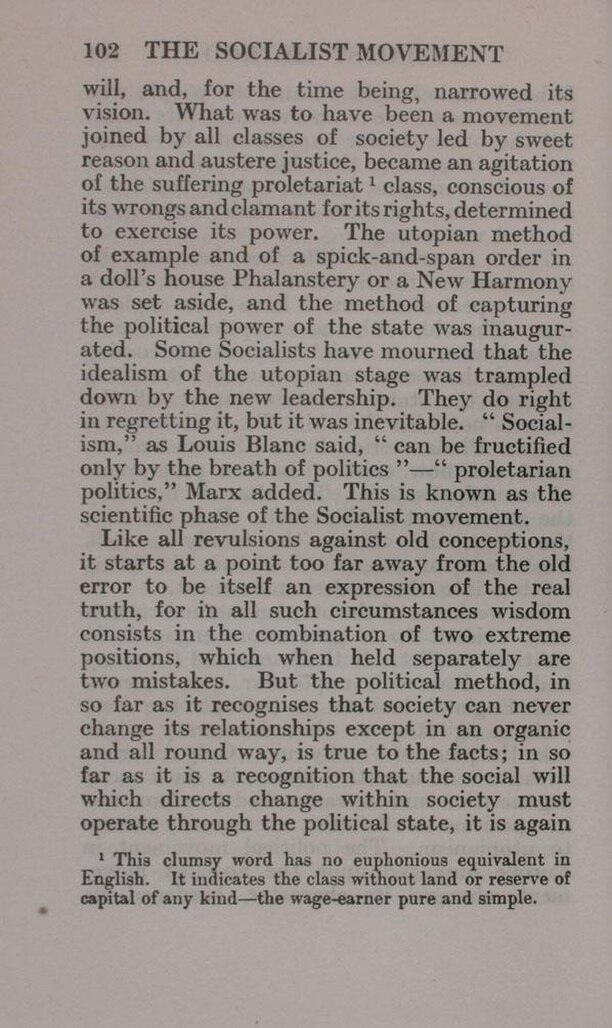will, and, for the time being, narrowed its vision. What was to have been a movement joined by all classes of society led by sweet reason and austere justice, became an agitation of the suffering proletariat[1] class, conscious of its wrongs and clamant for its rights, determined to exercise its power. The utopian method of example and of a spick-and-span order in a doll's house Phalanstery or a New Harmony was set aside, and the method of capturing the political power of the state was inaugurated. Some Socialists have mourned that the idealism of the utopian stage was trampled down by the new leadership. They do right in regretting it, but it was inevitable. "Socialism," as Louis Blane said, ‘"can be fructified only by the breath of politics"—"proletarian politics," Marx added. This is known as the scientific phase of the Socialist movement.
Like all revulsions against old conceptions, it starts at a point too far away from the old error to be itself an expression of the real truth, for in all such circumstances wisdom consists in the combination of two extreme positions, which when held separately are two mistakes. But the political method, in so far as it recognises that society can never change its relationships except in an organic and all round way, is true to the facts; in so far as it is a recognition that the social will which directs change within society must operate through the political state, it is again
- ↑ This clumsy word has no euphonious equivalent in English. It indicates the class without land or reserve of capital of any kind—the wage-earner pure and simple.
